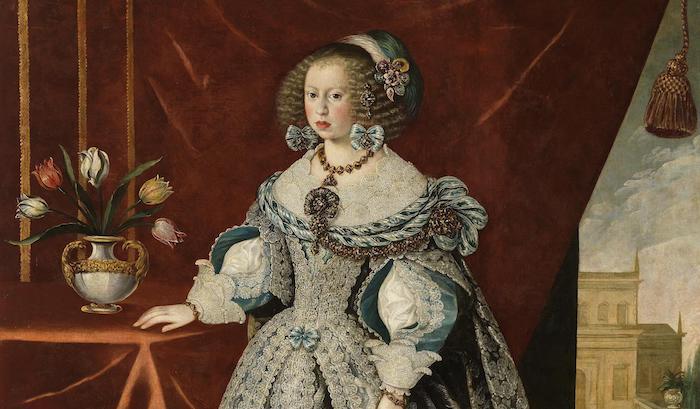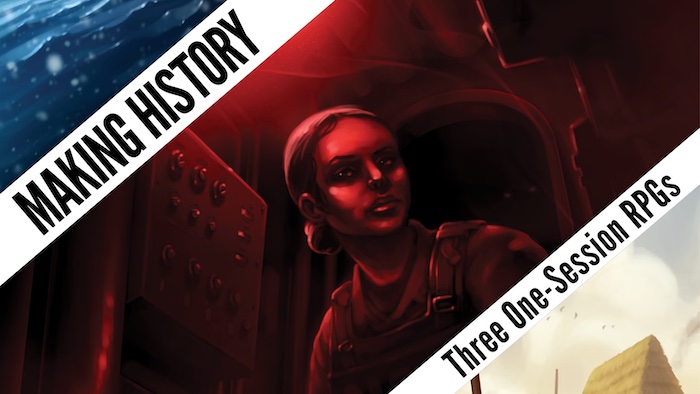In the seventeenth century, an Iraqi named Elias al-Mûsili traveled throughout Latin America, armed with a thick stack of letters of introduction from some very prestigious people. With these letters, he was welcome just about anywhere ruled by Spain – and he accumulated more letters as he went. Historically, letters of introduction were boilerplate, a standard part of any traveler’s kit. Al-Mûsili took these boring letters to their logical extreme. In addition to making good inspiration for an interesting NPC, he shows that a letter of introduction from the right person can make fabulous treasure in an RPG campaign, and launch new adventures on its own.
This post is brought to you by beloved Patreon backer Colin Wixted. Thanks for helping keep the lights on! If you want to help keep this blog going alongside Colin, head over to the Patreon page – and thank you!

A letter of introduction basically says “the person carrying this is cool”. Usually they’re written by important people, addressed to other important people. They range from mundane (vouching for the good conduct of a prospective employee) to fancy (certifying that the bearer really is the new ambassador). They can be addressed to a specific reader or to a generic ‘to whom it may concern’. If you carry a letter of recommendation saying you’re the good friend of someone prestigious, folks looking to curry favor (or avoid causing offense) may offer you hospitality or their own friendship.
Elias al-Mûsili was the deacon of the Chaldean church in Baghdad in the mid-1600s. His church was in desperate need of funds. Chaldean Christianity had just restored its close ties to the Catholic Church. It seems al-Mûsili might have decided Rome was a good place to raise some money. “Hey guys, since we’re friends again, how about you show your appreciation financially?” In 1668, al-Mûsili left Baghdad for Jerusalem, then onwards to Rome. Al-Mûsili’s account of his travels is often cagey about money. If Pope Clement IX offered him any, al-Mûsili doesn’t mention it. What he did get, though, was a letter of introduction. With this letter in his pocket, al-Mûsili was able to tour France, Portugal, and Spain, meeting many important people. In Madrid, he met with Mariana, the Queen Regent. She gave him letters to carry to Sicily and Naples, ordering her subordinates there to give the traveler large sums of money. He did as he was told, but was spurned. He got no money. He returned to Spain in defeat.
In Madrid, Queen Regent Mariana offered to grant al-Mûsili any favor he asked. One of the deacon’s traveling companions gave him some great advice. If al-Mûsili needed money for the church in Baghdad, he should go where Spain’s money comes from. He should ask permission to sail for America. At the time, only Spaniards were permitted to travel to Spain’s colonial possessions in South America, Central America, and the Caribbean. Spain didn’t want its European rivals to get accurate intelligence on the colonial possessions that funded the gilt and military might of Hapsburg Europe. But Mariana gave al-Mûsili special dispensation and a letter of introduction. It seems like a bunch of important people in Spain and elsewhere in Europe also wrote al-Mûsili their own letters of introduction.

We have to read between the lines of al-Mûsili’s text on this point, but I think the man was super likable. Every time he leaves somewhere, people seem sorry to see him go. He makes friends easily and remains loyal to them, even when it proves inconvenient. We see that loyalty make him new friends, even among the enemies of his earlier friends. In his whole travelogue, he only has mean things to say about one person, and even that’s pretty mild. So as al-Mûsili traveled from the Caribbean to Colombia, Panama, Peru, Chile, and Bolivia, he accumulated friendships – and all those friends wrote him letters of introduction. When he arrived in a new regional capital, he could stroll right up to the archbishop and give him letters from all these other bishops and archbishops, clear up to the Pope himself. He could arrive at the governor’s house and offer letters from a who’s who of the colonial administration, clear up to the Queen Regent – and probably from some of the governor’s relatives to boot. When he left the city, he carried a few new letters as he went.
Al-Mûsili’s plan to raise funds in his travels seems to have been successful. Spanish America was awash in silver, hauled out of mines by forced Indigenous labor and traded for the sugar grown by enslaved Indians and Africans on Caribbean plantations. Wherever al-Mûsili went, people were lining up to give him presents of silver. His letters of introduction didn’t just get him in the door. They made him seem important, and important people get gifts. Al-Mûsili’s pack animals and enslaved porters were carrying so much money that he grew cautious about whose houses he’d sleep in, lest his host help himself to some of al-Mûsili’s wealth. The man even lets slip that he started acting as a sort of mobile bank, offering loans to governors and viceroys payable on his return – at steep interest rates. When al-Mûsili sailed back to Europe in 1683, he did so a rich man.

I see three takeaways from al-Mûsili: a treasure, an adventure hook, and an NPC.
As a treasure, a letter of introduction from someone prominent is a bit of delayed gratification. It’s not immediately relevant, but it can be a launching point for future adventures. The right letter can get the party into places otherwise barred – fancy banquets and palaces, obviously, but for al-Mûsili most of Central and South America! Plus, by associating yourself with the powerful, you open yourself up to future gifts and revenues, as al-Mûsili did.
As an adventure hook, you could let slip that the party needs a letter to get where they want to go – but they don’t have one! But there’s a function in town next week where there will be some NPCs who need introducing; no one in town knows them. The PCs can scope out these unknown luminaries, then identify one to rob for his letter. Ideally, the luminaries are all scumbags so the players feel good about robbing ‘em, but you do you.
Al-Mûsili also makes a great NPC: peripatetic, rich, well-connected, and incredibly nice. Since he’s a traveler from a far-off land, he can pop up just about anywhere without needing much justification.

I came across Mylne’s letters while working on a cool project for a Revolutionary War RPG called Nations and Cannons. You play as scouts, renegades, and light infantry skirmishers shaping the battlefield for the critical engagements of the Revolution. N&C is built on the bones of 5th edition D&D so it can reach a wider audience as an educational tool. The 5e framework also works remarkably well for light infantry skirmishes in the 18th century – surprising but true! I’m a major writer on Poor Richard’s Almanacand The American Crisis.
Make sure you don’t miss a blog post by subscribing to my no-frills, every-other-week mailing list! I also have a signup that’s only for big product releases!
Looking for material for your game tonight? My back catalog has hundreds of great posts, all searchable and filterable so you can find something from real history or folklore that fits exactly what you need! Posts older than a year are behind a very cheap paywall – only $2/month!
Come follow and chat with me on social media! On Mastodon I’m @MoltenSulfur@dice.camp. On Twitter, I’m @moltensulfur. On Blue Sky, I’m @moltensulfur.bsky.social.
Enjoy this post? Consider sharing it on social media, or maybe emailing it to a GM friend of yours. The social media infrastructure that creators relied upon to grow their audience is collapsing. You sharing my stuff helps me stay relevant and ultimately helps me get paid for my time.
Check out my book Making History: Three One-Session RPGs! It’s three awesome historical one-shots with pregenerated characters and a very simple rules system designed specifically for that story. Norse Ivory is a game about heritage and faith in the Viking Age. A Killing in Cahokia is a murder mystery in the Native American temple-city of Cahokia. And Darken Ship is a horror-adventure starring junior sailors on a U.S. Navy warship who wake up one morning to discover they’re alone on a ship that should carry three thousand.







